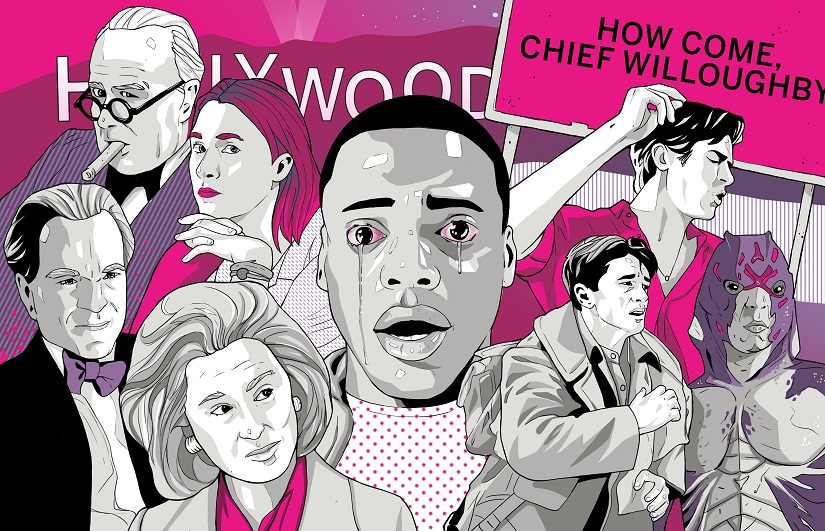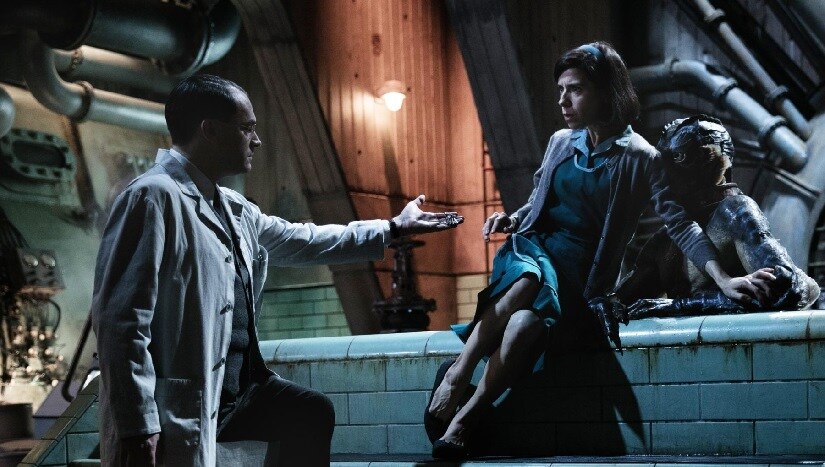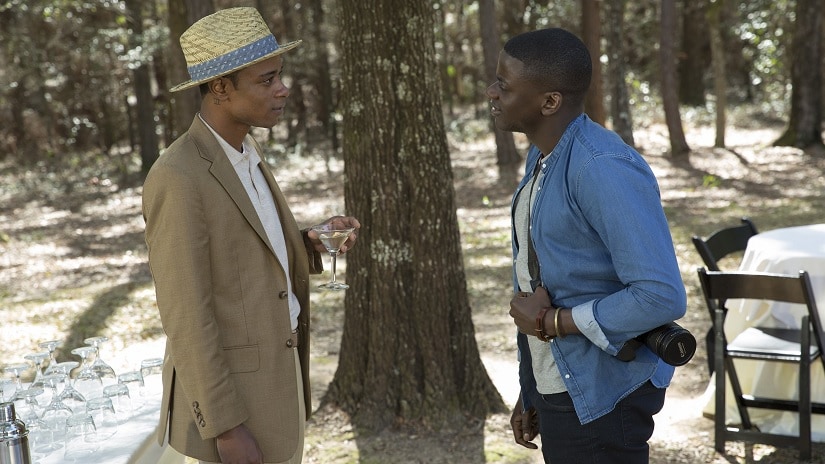________ A to Z kerala .......... [kvk] [www.atozkerala.in , www.atozkerala.blogspot.com]
And the night before, alarms were set — to make sure you did not miss watching your favourite movie NOT win an Oscar.

Yes, the 90th Academy Awards felt like a tediously long, poorly
directed movie with a few too many montages, seemingly improvised
dialogue and an awfully predictable ending. And I get you are upset that
The Shape of Water dashed the hopes of a rare Best Picture win
— for a woman, a black filmmaker, the horror genre or whatever
injustice riles you up. But, in its 90-year history, how often has the
Academy awarded the year's "best" film the top honour. It has almost
habitually awarded the "lesser" movies. Moonlight's victory last year was as shocking as the gaffe that preceded it. So, I can understand why it gave us all false hope that things may be different in the future.
Sadly, they are not. Virtually all of those predicted to win did win — from the night's first award to Sam Rockwell (Three Billboards Outside Ebbing, Missouri) for Best Supporting Actor to its last and most 'prestigious'.
At a time, where every awards ceremony and cultural event seems to be politically charged or providing commentary, it was up to the Oscars to do something radical, rather than routine. And I do not mean hiring a more provocative and irreverent comedian like Ricky Gervais to host the show (although that would have definitely made it more watchable). It should have reflected in the Academy's choices.
But it was your usual self-indulgent, hollow affair. The ceremony, the jokes and the Best Picture all reflected a faux-utilitarian approach — a need to please and include everyone without really doing anything meaningful or subversive. The Academy chose a safe, derivative film over the more inspiring, imaginative choices in the Best Picture category. The host Jimmy Kimmel made the kind of jokes you expected him to make — on Envelopegate, Trump, Weinstein, gender pay gap among others — to help break the looming tension. He obviously played it safe in fear of the advertisers and the sensibilities of network TV audience.
With all the feel-good diversity talk about this year's nominations which brought in different voices in terms of race, gender and sexual orientation, what was also pleasing to see was the inclusion of a horror film. And Get Out was not your typical popcorn spiller; it was one of the most thoughtful and terrifyingly relevant films with the potential to rejuvenate a genre. Jordan Peele's directorial debut was as layered and explicitly political as del Toro's visionary fairy tale for grown-ups. Not, not The Shape of Water but Pan's Labyrinth, which failed to win even in the Best Foreign Language Film category in 2007. But his latest, which also happens to be his least fantastical and most unexciting offering yet, seems almost airbrushed to accommodate the Hollywood elite's aversion to genre cinema.

And they returned the favour. The Shape of Water's Best Picture nod should not be seen as a win for the fantasy genre whose only other title-holder was the 2004 anomaly The Lord of the Rings: The Return of the King.
Underneath del Toro's dreamy inter-species fairy-tale is a loving
Technicolor ode to the golden age of Hollywood and its classic monster
movies and musicals. Even the film's heroine, Sally Hawkins' Eliza,
lives in a top-floor apartment which is located directly above a vintage
one-screen cinema hall. And if we learnt something from recent Best
Picture winners like The Artist, Argo and Birdman,
it is that there's nothing Hollywood likes more than homages to itself.
And Del Toro's generous servings of nostalgia more than helped his
cause.
While the Oscars give longevity and
validation to certain films, many a Best Picture winner have since faded
into cinematic oblivion. Not only did they not stand the test of time,
they just were not as good as the Academy originally thought. Meanwhile,
many of the films that released the same year as these 'Best Pictures'
are now universally acknowledged as classics. Few remember How Green Was My Valley, Oliver!, Ordinary People or Dances with Wolves but we all fondly look back at Citizen Kane, 2001: A Space Odyssey, Raging Bull and Goodfellas.
Another aggravating Oscar trend that baffles all film buffs and historians is the Academy's repeated slights against some of the greatest directors. Paul Thomas Anderson and Christopher Nolan have been consistently makings films which fulfill the Academy's tenets for Best Director: aesthetic originality, technical innovation, cultural significance and artistic value. Yet, they have no Oscar to show for it. It sure seems like they may join an elite list of fellow snubbed auteurs — a list that boasts names like Alfred Hitchcock, Akira Kurosawa, Charlie Chaplin, David Lynch, Ingmar Bergman, Federico Fellini, Jean-Luc Godard, Quentin Tarantino, Stanley Kubrick and Terry Gilliam.
Martin Scorsese too belonged on that
list for a long while but then a certain Harvey Weinstein changed that.
Before he went from one of Hollywood's most celebrated producers to a
punching bag that represents abuse by powerful men, Weinstein had shaken
up the film industry in another way. In the 90s, he spearheaded a
series of aggressive and highly effective Oscar campaigns involving a
mix of fancy parties where voting members could schmooze with cast
members, orchestrating negative whisper campaigns against rival nominees
and old-school cold-calling. Aided by these dirty tricks, he famously
helped Shakespeare In Love beat Saving Private Ryan in 1999. He not only got the greatest actor of our generation, Daniel Day Lewis, testify in the US Senate in support of the Disability Act, in his campaign for My Left Foot but, as someone once told
Peter Biskind, he turned Scorsese, "one of the greatest directors in
the history of cinema, into a guy who would wash your car for your vote"
during his Gangs of New York campaign. Soon, other studios
followed suit employing similar Oscar strategists, who knew how to
persuade the voting members of the Academy.

So yes, the Oscars are a carefully orchestrated sham and yes, the system is broken and needs changing.
Of course, the perennial differences in taste between movie lovers and movie industry professionals does not help either. The continual triumph of period pieces, costume dramas and other 'prestige titles' over original, pioneering, genre-bending films reflect our varying palettes. For us, Get Out is a more inspiring choice for Best Picture than The Shape of Water. For the Academy, not so much.
Yet, we watch with earnest belief hoping the Academy finally recognises what you thought was the best film of the year. But it is like watching the rerun of last night's game and hoping for a more favourable result. Your team loses.
The #OscarsSoWhite along with the #TimesUp and #MeToo movements have helped push forward the conversation about racial diversity and sexual misconduct. They are slowly but surely helping reshape how Hollywood makes its movies. But we need a similar campaign (is #OscarsSoTrite an option?) to highlight not only the sheer predictability of this 90-year-old glorified circle-jerk but also the industry's deep-seated genre bias and the dirty tricks involved in Oscar campaigns. While we are at it, we need the Academy to set an age limit to get rid of all the stuffy old dudes who did not even bother to watch Get Out.
The Academy Awards ceremony is supposed to be a time to celebrate the best that cinema has to offer but instead, all we get each year, is a bunch of smug, self-important snobs who continue to disregard its potential. For the apparent gold standard of awards shows, it remains a formulaic bore bogged down by traditions.
The Oscars are a 90-year-old joke with a predictable punchline. And we expect a fresh, millenial twist.
Oscars 2018: #TimesUp for the 90-year-old Academy and its predictable, uninspiring ceremony
Looking ahead to the 90th Academy Awards, dozens of articles were churned out — with many an hour spent reviewing, contemplating, analysing and needlessly intellectualising fish-y fornications and peach-y perversions. Numerous water cooler discussions and fiery debates were had — between self-proclaimed experts and millennials with a severe case of the dreaded FOMO. Predictions were made — from daring to the obvious.And the night before, alarms were set — to make sure you did not miss watching your favourite movie NOT win an Oscar.

Mashup of Best Picture nominees. Artwork via Reddit/all_night3r
Sadly, they are not. Virtually all of those predicted to win did win — from the night's first award to Sam Rockwell (Three Billboards Outside Ebbing, Missouri) for Best Supporting Actor to its last and most 'prestigious'.
At a time, where every awards ceremony and cultural event seems to be politically charged or providing commentary, it was up to the Oscars to do something radical, rather than routine. And I do not mean hiring a more provocative and irreverent comedian like Ricky Gervais to host the show (although that would have definitely made it more watchable). It should have reflected in the Academy's choices.
But it was your usual self-indulgent, hollow affair. The ceremony, the jokes and the Best Picture all reflected a faux-utilitarian approach — a need to please and include everyone without really doing anything meaningful or subversive. The Academy chose a safe, derivative film over the more inspiring, imaginative choices in the Best Picture category. The host Jimmy Kimmel made the kind of jokes you expected him to make — on Envelopegate, Trump, Weinstein, gender pay gap among others — to help break the looming tension. He obviously played it safe in fear of the advertisers and the sensibilities of network TV audience.
With all the feel-good diversity talk about this year's nominations which brought in different voices in terms of race, gender and sexual orientation, what was also pleasing to see was the inclusion of a horror film. And Get Out was not your typical popcorn spiller; it was one of the most thoughtful and terrifyingly relevant films with the potential to rejuvenate a genre. Jordan Peele's directorial debut was as layered and explicitly political as del Toro's visionary fairy tale for grown-ups. Not, not The Shape of Water but Pan's Labyrinth, which failed to win even in the Best Foreign Language Film category in 2007. But his latest, which also happens to be his least fantastical and most unexciting offering yet, seems almost airbrushed to accommodate the Hollywood elite's aversion to genre cinema.

Guillermo del Toro's The Shape of Water won both Best Director and Best Picture at the 90th Academy Awards.
Another aggravating Oscar trend that baffles all film buffs and historians is the Academy's repeated slights against some of the greatest directors. Paul Thomas Anderson and Christopher Nolan have been consistently makings films which fulfill the Academy's tenets for Best Director: aesthetic originality, technical innovation, cultural significance and artistic value. Yet, they have no Oscar to show for it. It sure seems like they may join an elite list of fellow snubbed auteurs — a list that boasts names like Alfred Hitchcock, Akira Kurosawa, Charlie Chaplin, David Lynch, Ingmar Bergman, Federico Fellini, Jean-Luc Godard, Quentin Tarantino, Stanley Kubrick and Terry Gilliam.

Get Out writer Jordan Peele became the first African-American to win the Academy Award for best original screenplay.
Of course, the perennial differences in taste between movie lovers and movie industry professionals does not help either. The continual triumph of period pieces, costume dramas and other 'prestige titles' over original, pioneering, genre-bending films reflect our varying palettes. For us, Get Out is a more inspiring choice for Best Picture than The Shape of Water. For the Academy, not so much.
Yet, we watch with earnest belief hoping the Academy finally recognises what you thought was the best film of the year. But it is like watching the rerun of last night's game and hoping for a more favourable result. Your team loses.
The #OscarsSoWhite along with the #TimesUp and #MeToo movements have helped push forward the conversation about racial diversity and sexual misconduct. They are slowly but surely helping reshape how Hollywood makes its movies. But we need a similar campaign (is #OscarsSoTrite an option?) to highlight not only the sheer predictability of this 90-year-old glorified circle-jerk but also the industry's deep-seated genre bias and the dirty tricks involved in Oscar campaigns. While we are at it, we need the Academy to set an age limit to get rid of all the stuffy old dudes who did not even bother to watch Get Out.
The Academy Awards ceremony is supposed to be a time to celebrate the best that cinema has to offer but instead, all we get each year, is a bunch of smug, self-important snobs who continue to disregard its potential. For the apparent gold standard of awards shows, it remains a formulaic bore bogged down by traditions.
The Oscars are a 90-year-old joke with a predictable punchline. And we expect a fresh, millenial twist.
അഭിപ്രായങ്ങളൊന്നുമില്ല:
ഒരു അഭിപ്രായം പോസ്റ്റ് ചെയ്യൂ